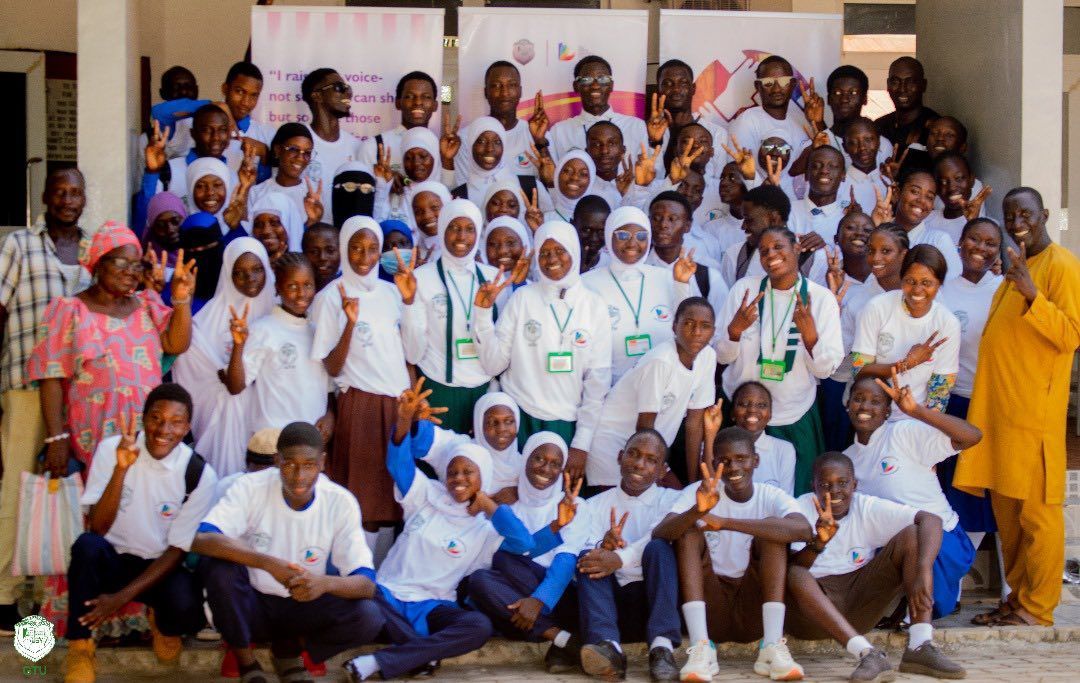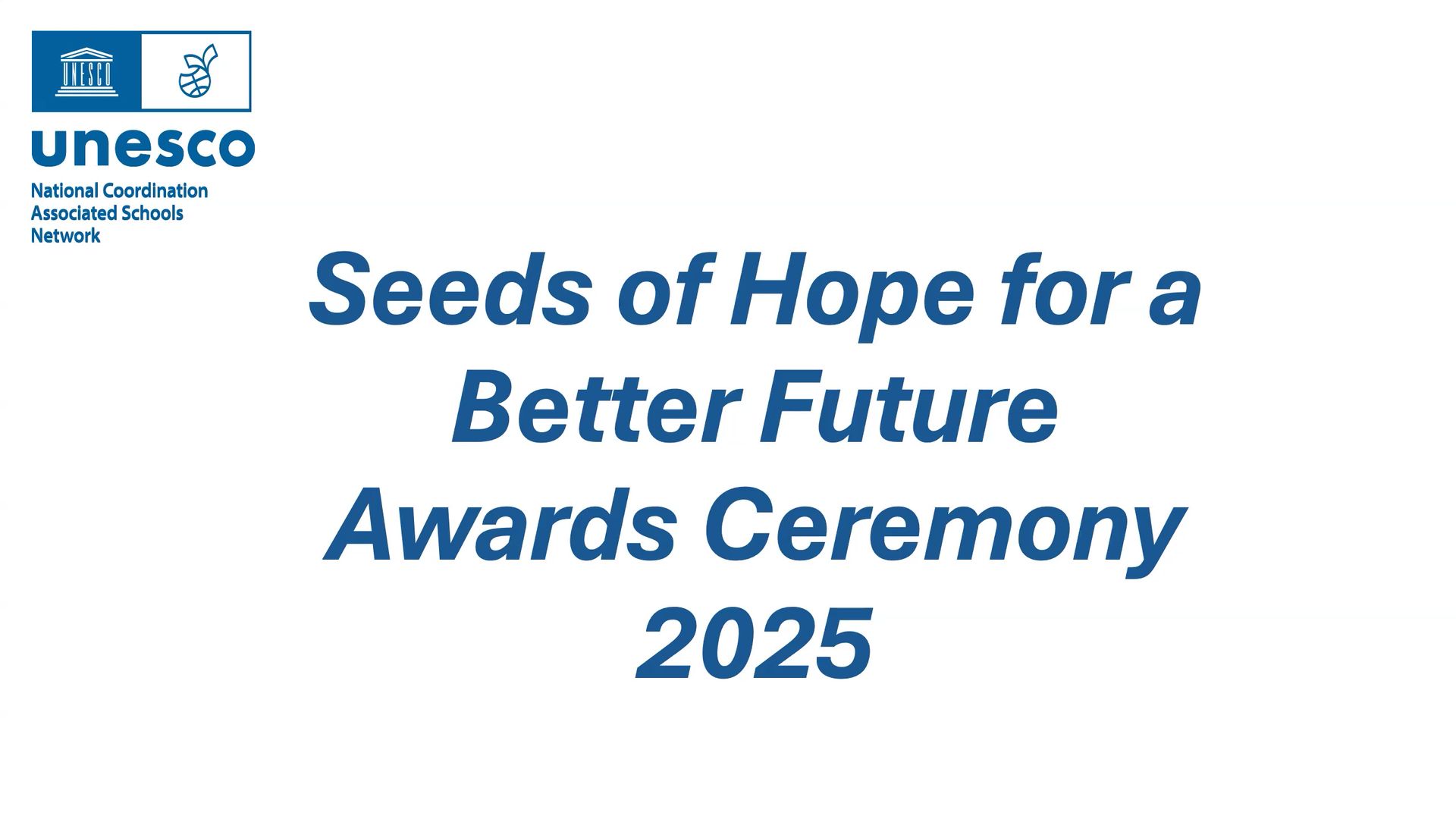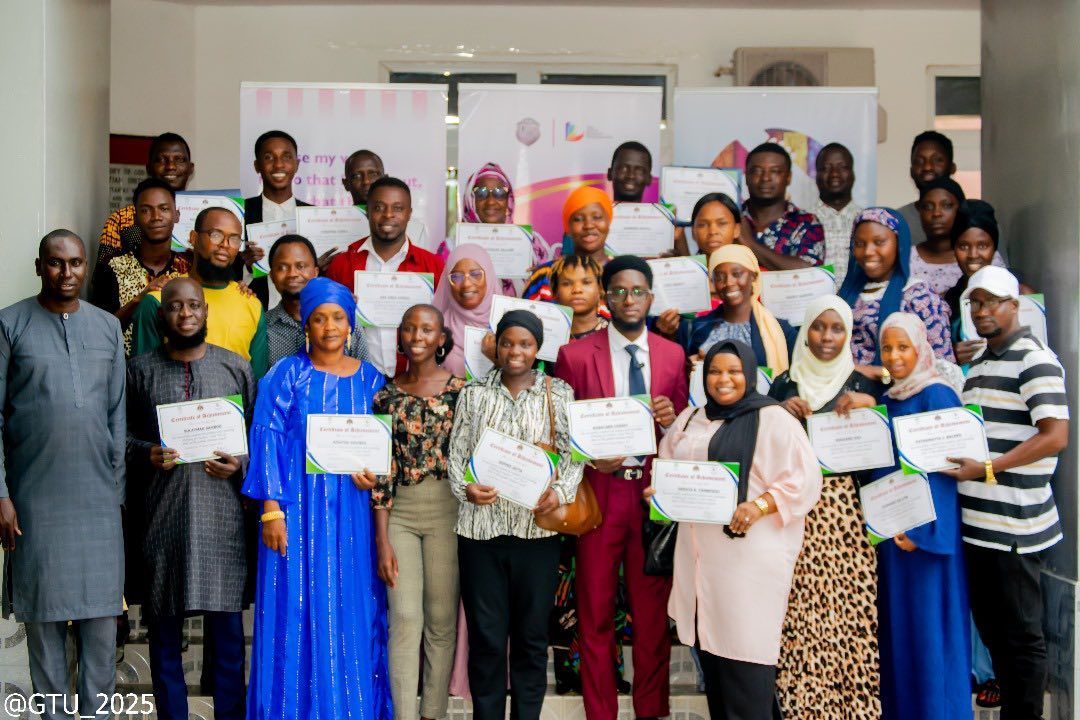A Successful Digital Classroom in The Gambia
Mariama Bah: On behalf of the entire community of Nema Kuta Basic Cycle School, School Management Committee Chair person, Mothers Club President, Regional Education Directorate 4, teachers and students, I wish to take this opportunity to thank the Gambia Teachers Union for identifying our School, and The Steve Sinnott Foundation for the financial support to provide these facilities.
This will help to improve performance, enrolment and retention of students in the school. The facilities will be greatly taken care of.
Let me take this opportunity to inform you that within a week a lot of students who were not coming to school have started coming. Some of them have never seen a Television set before. Even some of the parents came to the school to see for themselves when they were told about the news.
Please be informed that we got some recorded lessons from the Communication Unit of MoBSE for the teachers to use for teaching and learning.
(Mariama Bah, Principal NemaKuta Basic Cycle)
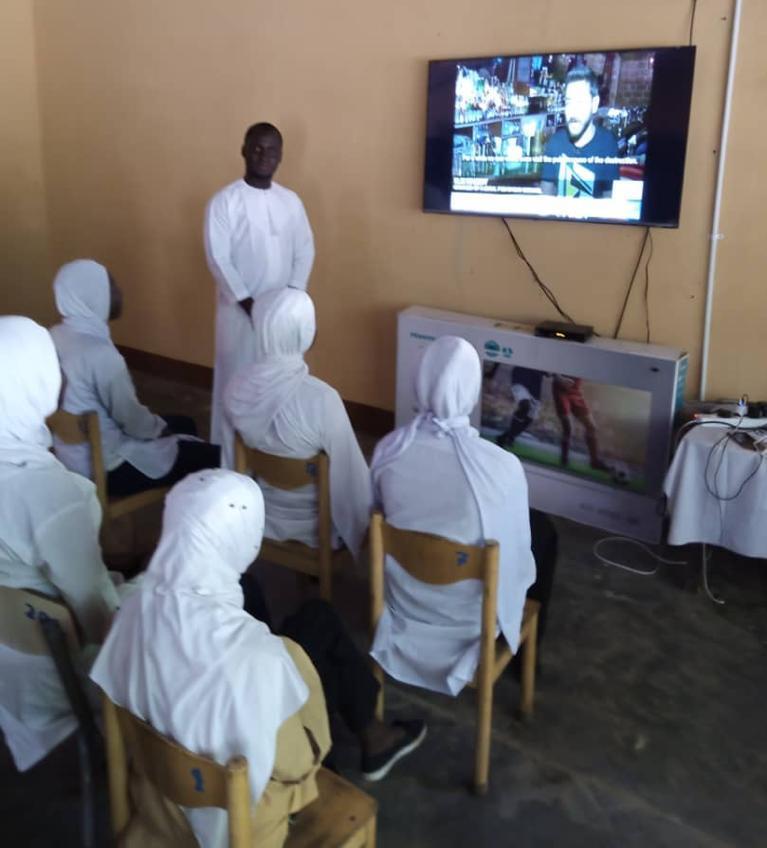
Feedback on the Digital Classroom at Nema Kuta Basic Cycle School
The Steve Sinnott Foundation (SSF) and the Gambia’s Teachers’ Union (GTU) launched a digital classroom project in March 2021 in the Lower River Region (LRR) which is Rural Area number 4 of the administrative divisions in The Gambia.
During the monitoring visits to the school, teachers, members of the school management committee, the village alkalo, a member of the mother’s club and some students were interviewed and this is some of the feedback they gave:
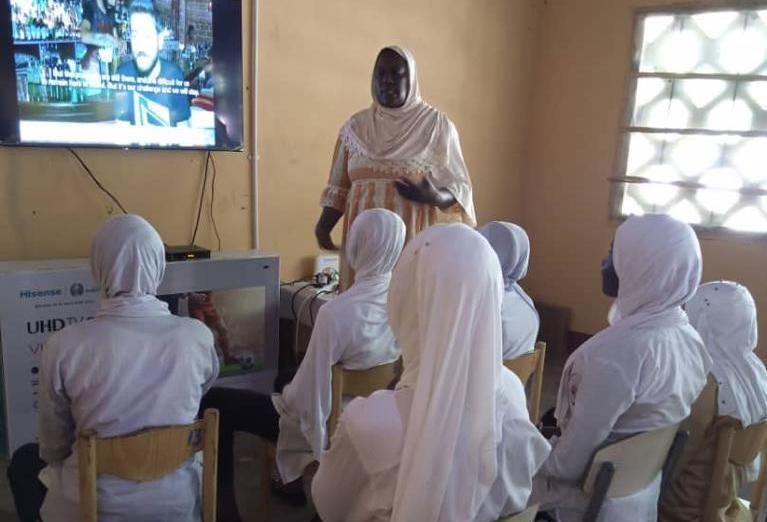


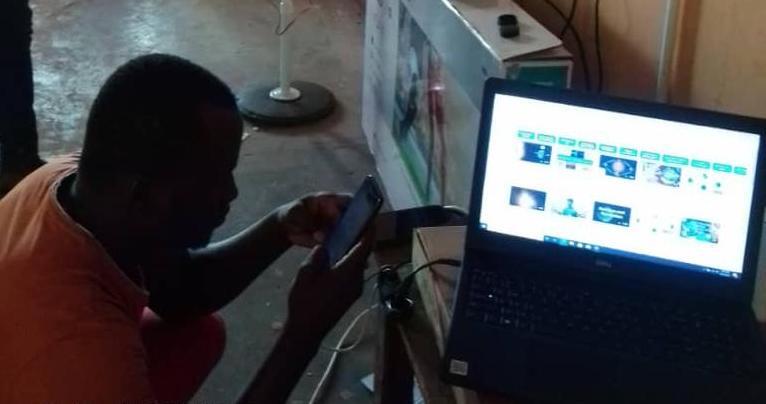
Impact on the learners and educators
Digital learning is far more engaging and interactive than voluminous textbooks, and offers more activities than traditional education methods. This allows the children to connect with the learning materials and fascinates the children beyond measure.
The advantages of the digital classroom at Nema Kuta Basic Cycle School is not limited to the students, but also helps teachers whilst researching the curriculum and provides ideas for planning lessons and offering better quality education.
The positive environmental impact is also recognised by the need for less paper for handouts and books. There is also time saved with fast access to information which makes research easier, maximizes the resources, and increases both reach and impact for students and educators alike.
In addition to all this the teachers now have the opportunity to charge their mobile phones at no cost. Before this facility a teacher would collect all the mobile phones and take them somewhere, then leave them for charging at a cost. Often it took a very long time to get them back.
The next developments:
Although a great improvement, there are still limited computers and laptops for the students to use. So students are waiting to access the facility because they have to take it in turns.
Therefore we are now looking to raise funds for more computers. Will you help us?
Related posts:
https://www.stevesinnottfoundation.org.uk/a-day-in-my-life-when-i-needed-access-to-technology
Related videos:
